Reviews
Franc Roddam
UK, USA, 1985
Credits
Review by Victoria Large
Posted on 22 October 2012
Source Comcast VOD
Categories 31 Days of Horror IX
James Whale’s 1935 film Bride of Frankenstein is one of horror’s earliest and maddest masterpieces, and its influence is everywhere, from endless variations on the eponymous Bride’s impossible hairdo to horror sequels like Bride of Re-Animator or Bride of Chucky that seek to capture something of Whale’s deliciously camp humor while prolonging their respective horror franchises. But the original Bride gets fairly little screen time: the story is almost over by the time she comes to life. Though she is Universal’s most famous female monster (with the likes of Gloria Holden’s elegant vamp in Dracula’s Daughter often remaining overlooked), we don’t see much of her, and it’s been noted that the Bride is the only one of Universal’s classic monsters who never kills anyone onscreen. Aside from her spectacular, hissing rejection of Boris Karloff’s bolt-necked monster as a potential mate (I don’t blame her), Whale’s Bride doesn’t get the opportunity to do very much of anything.
Given that she’s such an iconic female character who gets so little say in her fate, the prospect of a filmmaker reclaiming the Bride and granting her more agency (and richer characterization in general) is most appealing, and director Franc Roddam’s 1985 film The Bride seeks to do exactly that. It picks up just before Whale’s infamous ending, opening with a deliciously goth laboratory scene that finds Sting’s Dr. Charles Frankenstein surrounded by flashing lighting and mysterious experiments, assisted by a purple-haired Quentin Crisp (this film’s equivalent of the preening, camp Dr. Pretorious from Whale’s picture), and a hunched Timothy Spall. Once again, the Bride comes to life, a “better piece of work altogether” than Frankenstein’s previous attempt, and once again she is terrified by her intended mate (though she doesn’t hiss this time). The twist is that both of Frankenstein’s creations survive the destruction of his laboratory; the Bride, who Frankenstein names Eva, goes to live with him, while the scientist’s original male creation flees the burning wreckage of the tower and attempts to make his own way in the world.
The creations’ divergent storylines carry much of the film: while the male creation, who eventually acquires the name Victor, befriends a kindly dwarf named Rinaldo and begins a career with a circus in Budapest, Eva receives instruction from Dr. Frankenstein in everything from etiquette to literature. It seems that Frankenstein has changed his mind about Eva being a suitable mate for his creation, preferring instead to keep her for himself. Addressing a confidant named Calvell, Frankenstein couches his squirmy Pygmalion fantasies in quasi-feminist rhetoric like this: “I might make the new woman, Calvell. Independent, free, as bold and as proud as a man: a woman equal to ourselves.” Of course, the very premise that a woman can’t be “as bold and as proud as a man” without being the result of a bizarre science experiment is problematic in itself, and it’s also tough to shake the creepy image of Frankenstein standing at the edge of Eva’s bed, watching her sleep. It’s in unpacking and exploring the ickiness of Frankenstein’s desire to create the perfect woman that The Bride earns its revisionist stripes: soon enough, Eva rebels against his overbearing attentions, wooing a cute officer played by a young Cary Elwes, and correcting her creator when he attributes Prometheus Unbound to the wrong author. As Calvell puts it: “The trouble with free women, Charles, is they’re free to despise us.”
It’s unfortunate, then, that despite its revisionist bent, the film falls into some predictable patterns. Most disappointingly, Eva spends much of the climax in a dead faint, becoming just another damsel in distress. When Frankenstein snaps and attacks Eva, it’s a newly returned Victor who must save her. Indeed, despite its title, the film actually seems more interested in Victor’s journey of self-discovery than Eva’s, and no wonder: he goes out and experiences life on the road and in the circus, while Eva spends the majority the film brooding in Frankenstein’s castle. It’s also hard to be completely comfortable with the film’s ultimate suggestion that Eva and Victor are worthy match after all: Victor certainly grows over the course of the film, but he remains somewhat lumbering and naïve, a bit of a lug compared to his beautiful and articulate would-be bride.
Nevertheless, The Bride, which was poorly received upon its initial release and still doesn’t have much of a reputation, is likable despite its failings. No, it’s not much of a horror film: it has a sentimental heart and a leisurely pace, and in that regard it’s likely to disappoint more than a few members of the Fangoria set. And yes, it takes a few leaps of faith to believe that Eva, played by a doe-eyed Jennifer Beals, would grow into such an impressive society lady so quickly. But there’s something lovely about the idea that underlies this whole story: that though Frankenstein gives Eva and Victor life, they actually have the power to create themselves.
Roddam also includes a few neat, unexpected riffs on Whale - my favorite being Victor’s encounter with a blind man - and some sneaky bits of humor. (In one instance, Eva causes a scene at a posh party when she overreacts to seeing her first house cat.) The visuals, including a ballroom scene where it rains glitter, are sumptuous, and the performances are largely fine, though Beals doesn’t get to do much other than be beautiful and faintly defiant, and Sting’s character is mostly just a bastard. Time Bandits’ David Rappaport is so charming as Rinaldo that he all but walks off with the movie, and actually makes a few saccharine lines about following one’s dreams pretty palatable. Highlander baddie Clancy Brown, meanwhile, does nice work with Victor, who needs to be plausible both as a monster and a hero.
The film is good-natured almost to a fault - this is the kind of picture where a traveling merchant chooses not to take advantage of the gullible Victor, for one thing - but it’s a creative spin on a story that readily lends itself to revision. That The Bride doesn’t get it quite right could ultimately be seen as a challenge to filmmakers working now, more than a quarter century hence: perhaps this classic female monster deserves another reanimation.
More 31 Days of Horror IX
-
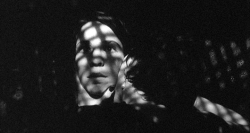
The Addiction
1995 -
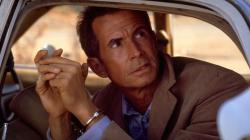
Psycho III
1986 -
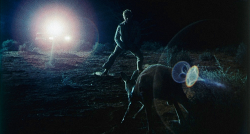
Wake in Fright
1971 -
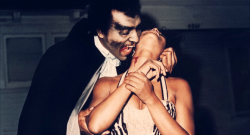
Blacula
1972 -
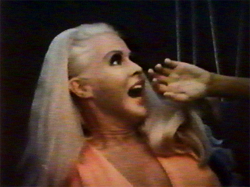
Big Foot
1970 -
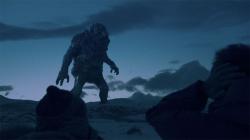
Trollhunter
2010 -
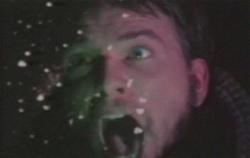
Invasion from Inner Earth
1974 -
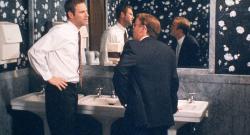
In the Company of Men
1997 -
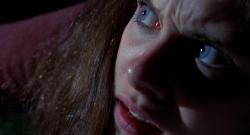
Happy Birthday to Me
1981 -
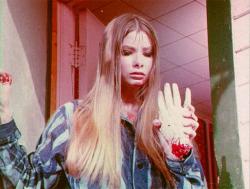
I Drink Your Blood
1970 -
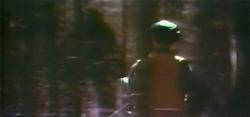
The Legend of Boggy Creek
1972 -

Maximum Overdrive
1986 -
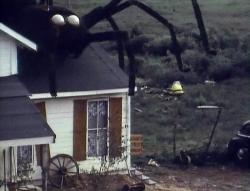
The Giant Spider Invasion
1975 -
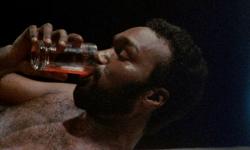
Ganja & Hess
1973 -
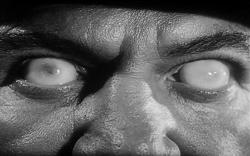
Not of This Earth
1957 -
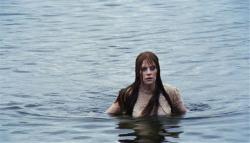
Let’s Scare Jessica to Death
1971 -
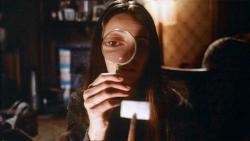
Next of Kin
1982 -
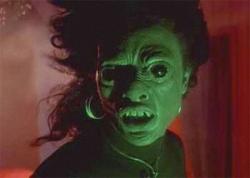
Def by Temptation
1990 -
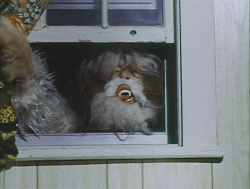
Shriek of the Mutilated
1974 -
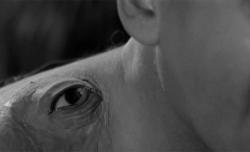
The Manster
1959 -
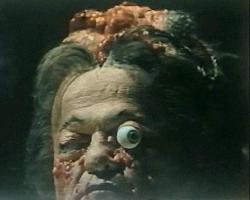
The Alpha Incident
1978 -
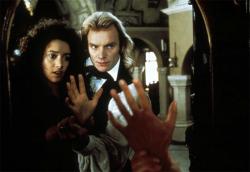
The Bride
1985 -
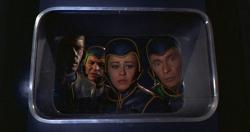
Planet of the Vampires
1965 -
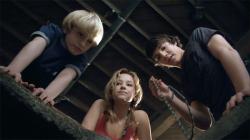
The Hole
2009 -
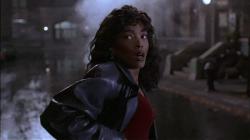
Vampire in Brooklyn
1995 -
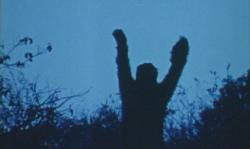
Sasquatch: the Legend of Bigfoot
1977 -
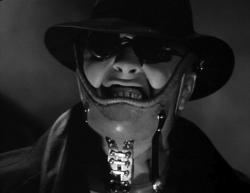
Mad Love
1935 -
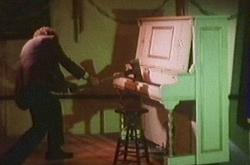
The Demons of Ludlow
1983 -

Habit
1997 -

Elephant
1989 -
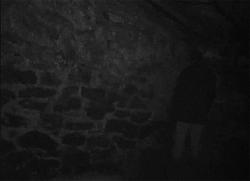
The Blair Witch Project
1999
We don’t do comments anymore, but you may contact us here or find us on Twitter or Facebook.



